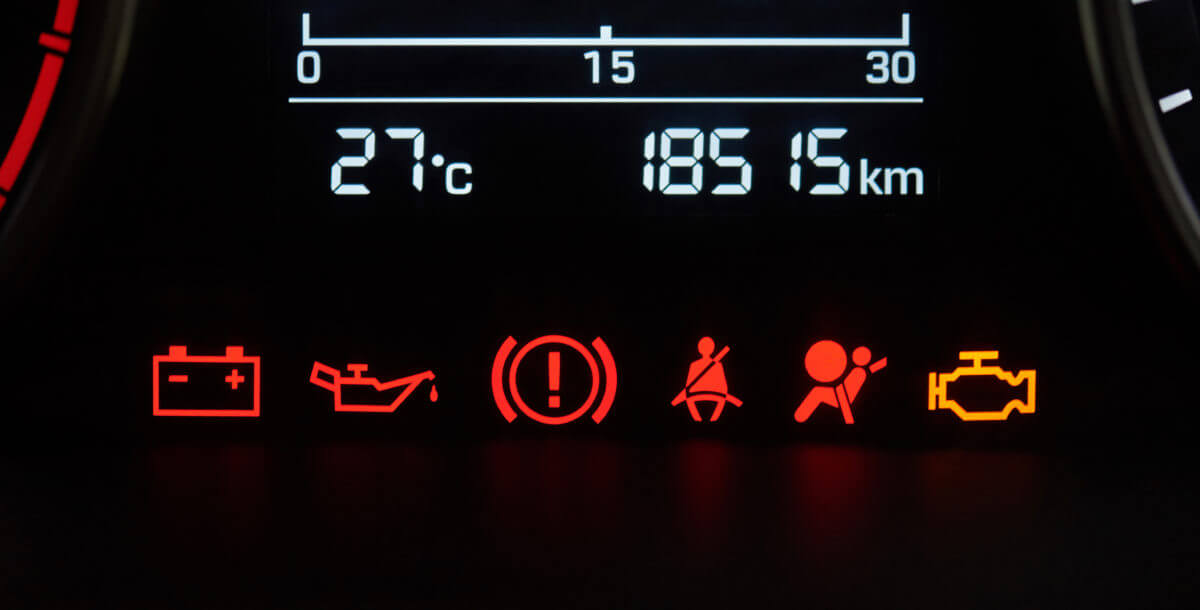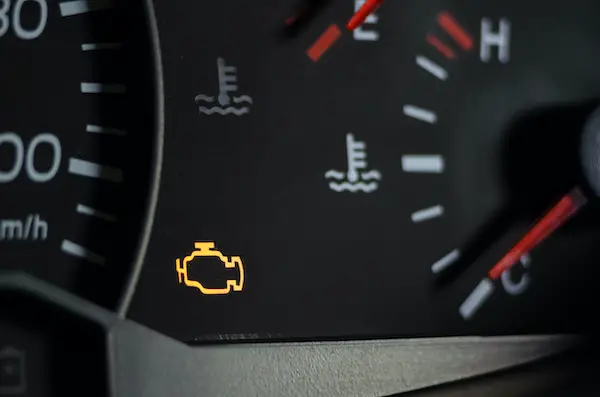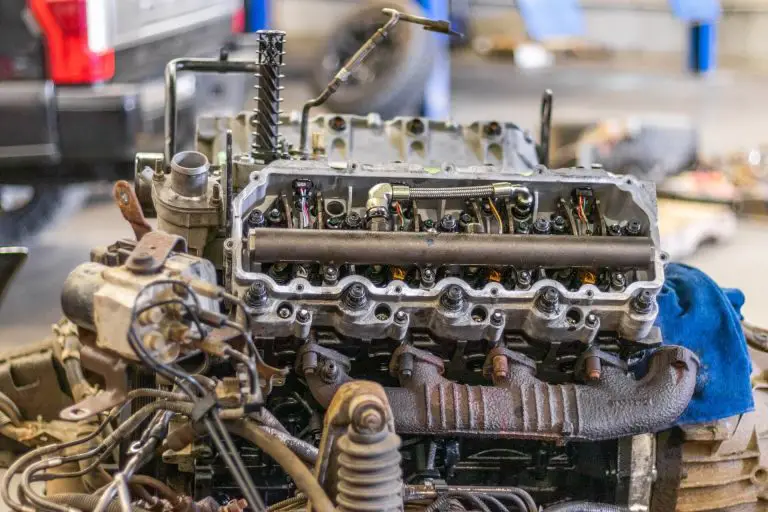Blinking Check Engine Light: What It Means
A flashing check engine light indicates a severe problem like an overheating engine or engine misfires, which can cause irreversible damage and requires immediate attention. It is not safe to drive with a flashing check engine light and you should stop, turn off the car, and call for assistance.
When you’re driving, the last thing you want to see is a blinking check engine light on your dashboard. But what does it mean? Is it safe to continue driving? Or should you pull over immediately? The truth is, a blinking check engine light is a cause for concern and should not be ignored.
It indicates a more serious problem like an overheating engine or engine misfires, which can cause irreversible damage if left unresolved. We will explore why the check engine light may start blinking, the potential causes behind it, and what actions you should take if you encounter this issue while driving. So, let’s dive in and get to the bottom of the blinking check engine light mystery.

Credit: barnettstowing.com
Understanding The Blinking Check Engine Light
The check engine light in your car is an important indicator that something is not functioning properly in your vehicle’s engine. It is designed to alert you to potential issues that could affect the performance, safety, and efficiency of your car. While a steady check engine light should not be ignored, a blinking check engine light is a sign of a more serious problem that requires immediate attention.
Severity Of A Blinking Check Engine Light
When the check engine light in your car is blinking, it indicates a severe problem that should not be ignored. Unlike a steady check engine light, which typically signifies a less urgent issue, a blinking check engine light suggests an immediate need for action to prevent further damage to your vehicle. Ignoring a blinking check engine light can lead to irreversible damage to your engine, resulting in costly repairs and potentially leaving you stranded on the side of the road.
Causes Of A Blinking Check Engine Light
There are several potential causes for a blinking check engine light. Common reasons include:
- Engine misfires: A misfire occurs when the fuel and air mixture in one or more cylinders fails to ignite properly. This can lead to engine damage if not addressed promptly.
- Overheating engine: An overheating engine can trigger a blinking check engine light. This issue should be addressed immediately to prevent further damage.
- Oil pressure problems: Low oil pressure or oil pressure fluctuations can lead to a blinking check engine light. Without proper lubrication, your engine can suffer serious damage.
- Fuel system issues: Problems with the fuel system, such as a blocked fuel line or faulty fuel pump, can cause a blinking check engine light.
- Other issues: The check engine light can also blink due to problems with the brakes, belts, hoses, or other components of your vehicle.
It is important to note that a blinking check engine light requires immediate attention, regardless of the specific cause. Delaying repairs can result in further damage to your engine and could lead to more costly repairs in the long run.

Credit: www.centralaveauto.com
Difference Between Blinking And Solid Check Engine Lights
When it comes to the check engine light in your car, it’s important to understand the difference between a blinking check engine light and a solid check engine light. While both indicate that there is an issue with your vehicle, the blinking light generally signifies a more severe problem that requires immediate attention, whereas the solid light indicates a problem that needs to be addressed but is typically not as urgent. Let’s take a closer look at the significance of each.
Significance Of A Solid Check Engine Light
A solid check engine light indicates that the onboard diagnostic system (OBD) has detected a problem with one or more of the vehicle’s components or systems. This could include issues related to the emission control system, fuel system, ignition system, or even the engine itself. While the problem might not be immediately critical, it is still important to address it as soon as possible in order to prevent further damage and to maintain optimal performance and fuel efficiency.
Some common reasons for a solid check engine light include:
- Loose or faulty gas cap
- Faulty oxygen sensor
- Malfunctioning catalytic converter
- Issues with the ignition system
- Problems with the mass airflow sensor
Importance Of Addressing A Flashing Check Engine Light
A flashing check engine light is a much more serious indication of a problem and should never be ignored. When the check engine light is blinking, it usually means that there is a severe issue with the engine or emission control system that requires immediate attention to avoid further damage. Continuing to drive the vehicle with a flashing check engine light can result in irreversible damage, costly repairs, or even a complete engine failure.
Some common reasons for a flashing check engine light include:
- Engine misfire
- Overheating engine
- Issues with the fuel system
- Problems with the ignition system
- Malfunctioning emission control components
If you notice that your check engine light is blinking, it is important to immediately stop driving, turn off the car, and seek professional assistance. A qualified mechanic will be able to diagnose and repair the underlying issue, ensuring the safety and reliability of your vehicle.
Actions To Take When Your Check Engine Light Is Flashing
When your check engine light is flashing, it indicates a serious issue like engine misfires or overheating. Stop immediately, turn off your car, and seek assistance to prevent further damage. Ignoring a blinking check engine light can lead to irreversible harm to your vehicle.
Immediate Steps To Follow
If your check engine light is flashing: Stop the car, turn it off, and seek professional assistance immediately.
Avoiding Further Damage
Do not:
- Ignore the flashing light
- Continue driving the vehicle
Do:
- Contact a mechanic to diagnose the issue
- Follow their recommendations for repair
Common Scenarios When The Check Engine Light Flashes
The check engine light is a crucial indicator of potential issues with your vehicle. When this light begins to flash, it signals a more serious problem that requires immediate attention. Below are some common scenarios when the check engine light flashes.
Engine Misfires And Shaking Car
A flashing check engine light and shaking both indicate a potential engine misfire. This problem is likely caused by a faulty spark plug or ignition coil, which can be resolved by replacing these components. Avoid driving with a flashing check engine light and a shaking car to prevent further damage.
Impact On Catalytic Converters
A flashing check engine light often signifies a severe issue, such as engine misfires leading to unburned fuel entering the exhaust system. This can significantly elevate the temperature of the catalytic converter, potentially causing critical damage. Addressing the cause of the flashing light promptly is crucial to prevent harm to the catalytic converter.
Preventive Measures And Resolving Issues
When your check engine light starts blinking, it can be a stressful and worrying experience. A blinking check engine light indicates a severe issue that requires immediate attention to prevent further damage to your vehicle. Preventive measures and resolving issues related to a blinking check engine light are crucial for maintaining the health and performance of your car.
Maintenance To Prevent Check Engine Light Issues
Regular maintenance is key to preventing check engine light issues. Conducting routine inspections and servicing of your car can help identify and address potential problems before they escalate. Make sure to adhere to the manufacturer’s recommended maintenance schedule, including oil changes, air filter replacements, and spark plug inspections. Keeping your vehicle in top condition through proactive maintenance can significantly reduce the likelihood of encountering a blinking check engine light.
Fixing A Blinking Check Engine Light
When faced with a blinking check engine light, prompt action is essential to prevent further damage. If your check engine light starts flashing, it is crucial to pull over to a safe location, turn off the engine, and seek professional assistance. Ignoring a flashing check engine light can lead to severe engine damage. A trained mechanic can diagnose the underlying issue using specialized diagnostic tools and address the problem effectively, ensuring the safe and efficient operation of your vehicle.

Credit: m.youtube.com
Frequently Asked Questions On Blinking Check Engine Light
Is It Ok To Drive With Flashing Check Engine Light?
A flashing check engine light indicates a serious problem, such as an overheating engine or engine misfires. It’s not safe to drive with a flashing check engine light. You should stop, turn off the car, and call for assistance.
What Causes A Blinking Check Engine Light?
A blinking check engine light is caused by a serious problem like an overheating engine or engine misfires. It could also indicate issues with the brakes, fuel line, belts, hoses, etc. The most common cause is an engine misfire that can damage the catalytic converter.
If the light is blinking, stop the car and seek assistance.
Why Is My Car Jerking And Engine Light Flashing?
If your car is jerking and the engine light is flashing, it likely indicates an engine misfire. This could be due to a faulty spark plug or ignition coil. Avoid driving further and seek immediate assistance to prevent potential damage.
Which Is Worse Flashing Or Solid Check Engine Light?
A flashing check engine light indicates a severe problem that requires immediate attention to avoid further damage.
Conclusion
When faced with a blinking check engine light, swift action is crucial to prevent further damage. Ignoring the warning can lead to serious engine issues. It’s best to stop, turn off the car, and seek professional assistance promptly. Stay safe and proactive with your vehicle’s maintenance.







